The
Munich Security Confrontation and the EU’s 'Peace in Ukraine' Ploy
The
51st meeting of the Munich Security Conference descended into a Cold
War-like confrontation, as many Western participants adopted an
anti-Russian stance that inhibited any useful dialogue.
Andrew
Korybko
8
February, 2014
The
Munich Security Conference is in spirit supposed to be a friendly
forum where global experts can gather to discuss cooperative
solutions to the most pressing security issues of the year. A few
significant events have transpired since the last time the event was
held, from the Ukrainian coup and civil war to the meteoric rise of
ISIL (to name but the most newsworthy), and the conference could have
presented an historic opportunity to resolve these crises.
Regrettably, the recalcitrant attitude and rhetoric of some
pro-Western representatives spoiled the whole show, and the EU’s
talks of peace in Ukraine amidst American calls for sending lethal
weapons to Kiev were a simple good cop-bad cop dynamic meant to
pressure Russia with an implicit ultimatum.
It’s
All About Ukraine
In
the week preceding the conference, the organizers released their
first-ever Munich Security Report, which outlined a vague agenda for
the participants to discuss. In short, it highlighted the Ukrainian
Crisis, ISIL, and the tension around the South China Sea as this
year’s global “hot spots”, thus guaranteeing that they would be
addressed in some fashion. As it happened, however, the Ukrainian
Crisis dominated the three-day conference, while the other two topics
were largely neglected.
A
day before the conference was set to begin, it was revealed that
Merkel and Hollande would be travelling to Kiev and then Moscow on an
emergency visit to sell their still-undisclosed version of a peace
plan to freeze the thawing hostilities. The worry was that without an
immediate cessation of violence or a reversal of Kiev’s disastrous
military fortunes, the US would decide to send lethal weaponry to
Ukraine next week and thus exacerbate the conflict to epic
proportions. Heightening the risk that this could happen, on Friday
the US released its first National Security Strategy in five years
and explicitly listed supposed “Russian aggression” as one of the
main threats facing America today, thus possibly providing the
‘national security grounds’ for arming Ukraine. With this in
mind, the Merkel-Hollande shuttle diplomacy begins to look more like
a last-ditch ultimatum to Russia than a genuine desire for peace.
While
the media reassures the public of Merkel-Hollande’s good intentions
and reminds them of why Europe doesn’t need another war, the two EU
leaders are really just the gentler, more presentable faces to the
US’ aggressive threats. They and the US are under the false
assumption that Russia is responsible for the reignition of
hostilities in Ukraine (note: it isn’t; Kiev’s shelling of
Donbass civilians is), and the idea goes that if they rush to Moscow
with whatever ‘peace plan’ they can think of, Putin would accept
it and call off the war because he’s so scared of American weapons
entering Ukraine
This absolutely false
premise has already been disproven by the fact that the Russian
President said that the upcoming Minsk meeting on Wednesday will only
take place “if certain issues would be agreed upon by that date.”
Obviously, Putin understands that whatever undisclosed ‘peace plan’
the EU is dangling in front of him is full of disadvantages for
Russia’s strategic security and the physical protection of Donbass,
hence why he didn’t take the bait when it was first presented to
him on Friday. Russia doesn’t control the forces in Eastern Ukraine
anyhow, so even if it agreed to an EU-sponsored proposal, it doesn’t
necessarily mean it will be implemented.
Diatribe,
Not Dialogue
Returning
the focus back to the weekend’s conference, it generally entailed
Western representatives condescendingly lecturing Russia, thus
forcing the Russian side on the defensive and detracting from any
opportunity for fruitful dialogue. Two dramatic anti-Russian speeches
defined the event
Edward Lucas
The
Economist’s senior editor came off as a ‘journalistic Joe
McCarthy’ when he tried spooking the crowd about the “Kremlin lie
machine” that somehow “won the war in Crimea without really
having to fire a shot.” Lucas is apparently under the misguided
impression that his stagnated career will receive a second wind if he
screams Russophobia (the Western zeitgeist), since this self-serving
move has surprisingly proven successful for John McCain, whom many
thought would have already retired from relevancy after his
humiliating 2008 Presidential defeat.
Petro Poroshenko
Ukraine’s
oligarch-in-chief took to the podium and waved around two handfuls of
Russian passports, supposedly obtained from the phantom Russian Army
that he alleges has ‘invaded’ his country for the umpzillionth
time. Never mind that Russian servicemen hand in their passports upon
answering the call of duty or that a secret ‘Russian mercenary’
conveniently dropping his ‘calling card’ at the scene of the
crime is about as fishy as Kouachi dropping his at the scene of
Charlie Hebdo, since Poroshenko was only using the supposed
‘passports’ as props to aid in his plea for American weapons.
The
False Choice
Once
more, this brings the conversation back to the topic of whether the
US will arm Kiev or not. Merkel made a speech at the Munich Security
Conference where she implored the US not to do so, saying that it
won’t bring peace to the country. This was interpreted by most of
the media as signaling a significant US-EU divide, but that’s not
the case. Merkel has personal reasons for making a big deal out of
preaching ‘peace’ since she’s rumored to want to be the next UN
Secretary General and such a move is wonderful PR for a forthcoming
campaign. The narrative that immediate peace in Ukraine can prevent
American arms shipments to Kiev is actually a false choice meant to
pressure Russia into a hasty agreement that can save Kiev’s forces
encircled in Debaltseve, and it doesn’t reflect the reality of the
situation.
If
the US wants to send weapons to Ukraine, it’ll do so with or
without current hostilities in the country and regardless of
Germany’s position on the matter. Germany has never told the US
what to do – it’s always been the other way around – and Merkel
has no realistic leverage such as a wiretap on Obama’s personal
phone with which to pressure him even if she honestly wanted to.
Supposing that the US opts not to directly send weapons to Kiev, it
can always do so indirectly via close NATO allies Poland and
Lithuania, which have already expressed an interest in selling
armaments there, as well as the UK.
Also,
Ukraine will likely not agree to any ‘peace proposal’ without
first consulting its American headmaster, since it’s the US and not
the EU that holds the cards in Kiev. There is the faint possibility
that peace could ultimately be procured (with or without American
weaponry being sent), but only if Merkel-Hollande genuinely
understand that it is in the EU’s interests to see this happen and
modify their ‘peace plan’ to sincerely accommodate Russian and
Donbass security interests. This would, however, be going behind
Obama’s back, and for that, Frau Merkel and Monsieur Hollande would
have some tough explaining to do the next time ‘Big Brother’
calls.
Poroshenko's
Move to Prove Russian Presence in Ukraine Met With Memes
Hilarity
ensued once social media users jumped to comment on Ukrainian
President Petro Poroshenko's presentation of Russian passports at the
Munich Security Conference.
8
February, 2014
Social
media users from Russia and elsewhere were quick to question and
disparage Ukrainian President Petro Poroshenko's showing off of
Russian passports, which he says are "the best evidence" of
a Russian military presence in Ukraine.
Speaking
at the Munich Security Conference on Saturday, the Ukrainian
President held up several passports which he said belonged to Russian
military personnel serving in Ukraine. "I [have taken] with me
the passports and military ID of Russian soldiers and officers,"
Poroshenko told conference attendees. "This is the best evidence
for the aggression and for the presence of Russian troops."
But
Twitter users weren't so quick to accept Poroshenko's evidence:
Others
questioned the condition of the documents themselves.
The
documents held up by the president featured three 'internal'
passports (an internal travel document used in Russia, similar to a
national ID card); a 'military ticket' of the kind given out to all
Russian men, whether or not they have served in the military; as well
as two passports for international travel, which Russians did not
even need to enter Ukraine until recently.
Serious
questions aside, the creative power of the social media soon came to
life, with users posting photoshopped images of the Ukrainian
president holding various objects ranging from sock puppets and
maracas to Pokemon cards and Cheburashka dolls in military fatigues.
"If
they don't buy the passports, next time I'll bring balalaikas,"
thought Poroshenko.
Others
posted images of what the inside of one of the passports might look
like, with one user posting an image of Jason Bourne's passport in
the Bourne Identity:
Another
went a step further to really press
the point home, featuring the Bourne Identity passport, but with an
image of Rocky opponent Ivan Drago with a Russian flag waving behind
him.
The
Russian Foreign Ministry has since asked the Ukrainian government to
provide it with copies of the documents in order to verify their
authenticity, but Kiev has thus far been unwilling or unable to do
so.
"We
asked the Ukrainian side to give us copies of the documents
containing last names, because the IDs such as those shown yesterday
could easily be bought," Foreign Ministry official Viktor
Sorokin told Russia's RIA Novosti on Sunday. He noted that "document
covers like the ones shown yesterday can easily be bought at a
street market."
Last
week, Ukraine's Chief of Staff Viktor Muzhenko told Ukrainian
television that he had found no evidence that the Russian army was
engaged in combat operations in Donetsk and Luhansk.
Last
month, President Poroshenko had alleged that there were up to 9,000
Russian military personnel fighting on the side of the separatist
eastern regions. The US State Department has not been able to provide
evidence for the allegations, while OSCE observers based at border
crossings noted that "there is absolutely no way you can
possibly hide huge military formations on a relatively small
territory wide open to reporters and OSCE representatives."
Since
the start of Kiev's military assault on eastern Ukraine’s
independence supporters in April 2014, Kiev and the West have
repeatedly accused Moscow of military intervention in the
crisis. The accusers claim that the Russian government has sent
troops and weaponry to help local militias, claims which Russian
officials have repeatedly denied for lack of evidence.
West's
Hybrid Warfare:
United We Stand... Against
Russia
West
to Russian Media: Use Your Inside Voice! Hybrid warfare was one of
the trending topics at the 51st Munich security conference. It
appears the 'secret ingredient' of this hybrid is Russophobia
Nikita
Alentyev
8
February, 2014
Apparently,
the Russian media are among the global security challenges, only
an article away from 'collapse of the world order," says
Edward Lucas.
'New
Cold War'
Speaking
at the panel discussion "WHO IS READY FOR HYBRID WARFARE?"
on the opening day of the Munich conference, Lucas – a
British journalist and the author of 'The New Cold War' – warned
the audience that the West faces an imminent threat from Russia.
In
a world where 50 Shades of Gray is a top selling book, a
narrative that paints Russian-West relations in black and white
has no edge. Solution? Publicity. Lucas choreographed a comeback,
just like how Missy Elliott at the SuperBowl managed to get
millenial kids to buy her tracks on iTunes. Way to shoot
for the short buck, which ironically is something Lucas warns
the West against in dealing with Russia.
Back
in the 1950s as the cold war propaganda took off in
the United States, Vance Packard published The Hidden Persuaders,
warning that 'Americans have become the most manipulated people
outside the Iron Curtain.' Looks like the warning went
unheeded. What used to be considered outrageous became a new
norm. Ultimately it spilled over from the US to the rest
of the Western world and the 'us and them' rhetoric
towards Moscow is now enjoying a florid renaissance.
Econ
101
"We
have a free press, we have a free media market – truth will
triumph. Well, it doesn’t. It doesn’t triumph when you’re faced
with RT, the former Russia Today, or with Sputnik – the
so-called media organizations which are directly plugged into the
Kremlin lie machine," Lucas told his audience.
A
free market that leads to the triumph of truth would hinge
on an audience that shows a demand for the truth. This
ultimately would lead to a situation where every media outlet
provides an honest account of the day’s news — a
homogeneous product sold in a market with perfect
competition. The textbooks say such this situation is next
to impossible. So is there no truth or simply no ground
for triumph? Looks like a finer point, which requires a
postgraduate degree in economics.
Another
feature of a free market is no government interference. What
Lucas suggests is using regulators like Ofcom to hush the
Russian propaganda. Free press, anyone?
He
also argued that people watch RT "because they think that the
mainstream media isn’t telling them the truth and they are fed
up with the political elite in our countries and the
economic growth or lack of it which they are delivering."
While the observation is astonishingly perceptive, Lucas suggests
the world "should be able to humiliate those channels [RT,
Sputnik]" and "push them out into the media fringes so
they are no longer treated as real journalists and real programs
but as cranks and propagandists.” That is rather than fix
whatever it is that has caused the political popularity of the
West's ruling class to dwindle. Totalitarian much?
Ostracizing
Your Way to Freedom of Speech
Working
for RT or Sputnik will never get you on Lucas' team,
because it's even worse than working as a PR person for a
tobacco conglomerate and "if anyone puts a CV on my desk,
and on that CV I see they worked at RT or Sputnik or one
of these things, that CV is going into the bin and not
into the intro." Putting aside the argument that PR
in tobacco is ultimately a lobby for personal choice,
Lucas' metaphor is still one lucky strike. After all, an alternative
look at what is happening in the world is just
as addictive. You will want to hear the non-mainstream
voice again.





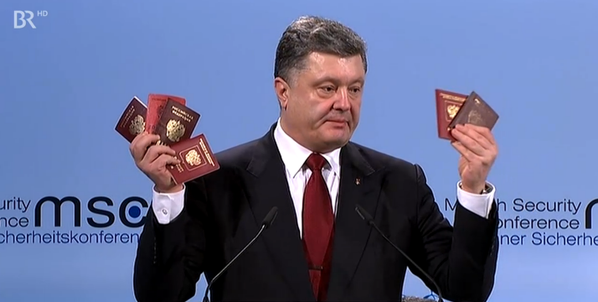


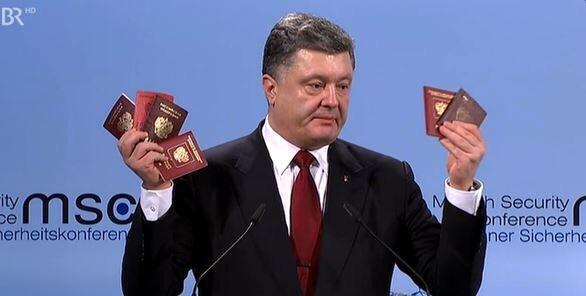
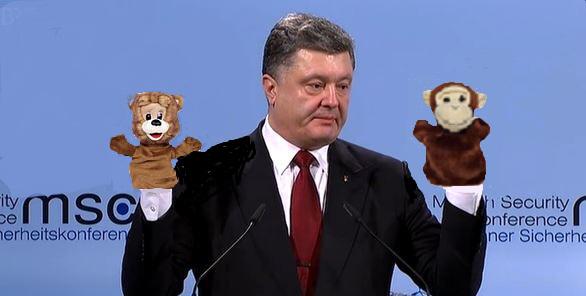
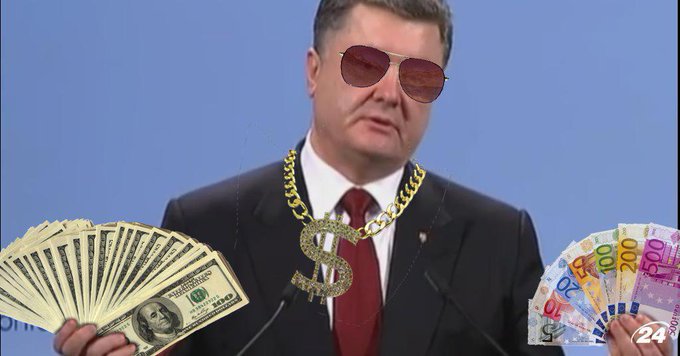
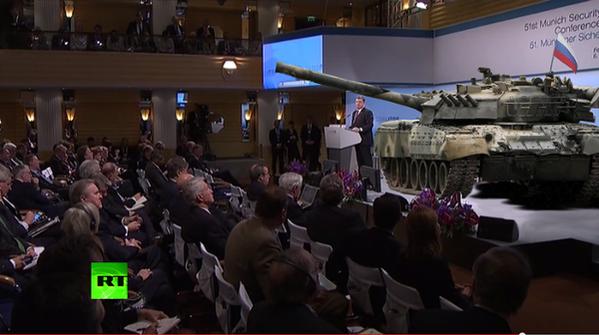

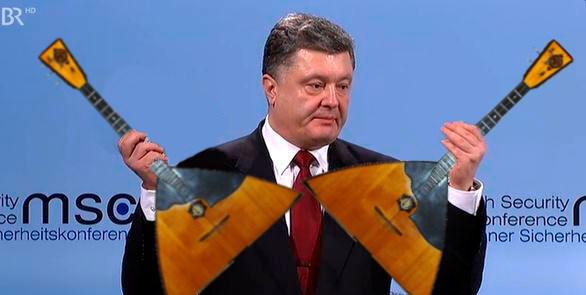

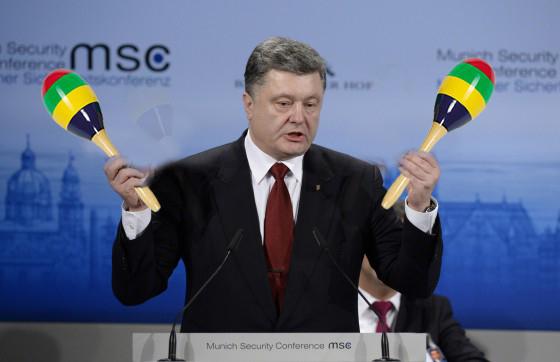

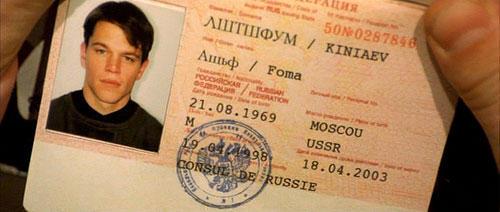




No comments:
Post a Comment
Note: only a member of this blog may post a comment.